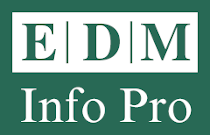You may have heard about ChatGPT in the past month. Launched in November, it became a household...
'A Quick Google Search Shows' ...
On social media, when someone wants to dismiss out of hand another person's opinion, they often revert to the time-worn "A quick Google search would have shown you .... (X number of results on the topic du jour)."
All too often, that quick Google search turns into an hour or more as you sift through irrelevant, outdated, biased, mis-leading, spammy, SEO-manipulated, paid-for and flat out false results.
Even a Google search for how much time employees spend searching for work-related information returned one result after another citing studies from 2001 by IDC and McKinsey in 2012. Clearly outdated, they persist in search results.
That kind of frustration leaves you lamenting that you didn't find anything authoritative, that you'll have to go with gut instinct or the anecdotal evidence you did find, and that you'll never get that time in your life back.
You're not alone. Complaints abound on the Internet about the difficulty of finding decision-quality information on search engines, particularly Google.
It takes skill, curiosity, patience, persistence and a healthy amount of skepticism to find those credible sources of information that make the difference between good and bad decisions.
Finding actionable info begins with knowing where to look, and the fact is, search engines might not even have the information at all.
Perhaps, instead, the information you need might be ...
- Prevented from being indexed by search engines
- Too new to be on the Internet
- Too old to be on the Internet
- Stuck in a database
- In the mind of a subject matter expert who needs to be interviewed
- In a government building that requires going on-site to collect or review
- Available only in a library that must be visited on-site
- Available only in a newspaper's morgue
- In someone's private collection of documents / images
- At a historical society or museum
- Behind a paywall that could cost thousands of dollars
- Located at other offline locations
Once you've figured out where the information you need resides, you need to determine if it's worth YOUR time to go get it, fact check it, and update it.
In this era of Great Resignations and staff shortages, it could well be more cost-effective to contract with an information professional who delivers credible, proprietary information for a living, thus freeing up your employees to focus on tasks they've trained for and that bring them the greatest job satisfaction.
I am Eric Magill, an Information Professional. Contact me for help with time-sucking research that leaves you stressed out and frustrated. You can also request an online meeting with me.



